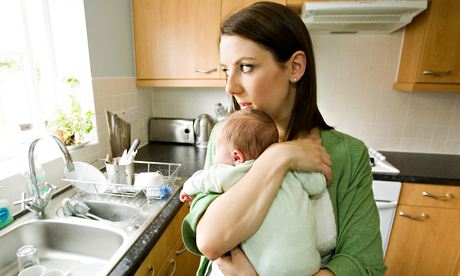
Most people know you can become depressed after having a baby. But isn't it limited to the first few months? A paper in this month's British Journal of Obstetrics and Gynaecology suggests not. The research, from the Murdoch Children's Research Institute and Royal Children's Hospital in Melbourne, Australia, says first-time mothers are more likely to be depressed when their child is four years of age than at any time in the first 12 months after having a baby. Women with just a four-year-old were more likely to report depression than those who also had younger children.
So do mothers need to watch out for depression indefinitely?
Solution
At least 10 to 15 new mothers in 100 have postnatal depression, according to the Royal College of Psychiatrists. Crying a lot, feeling exhausted, irritable, hopeless, anxious and bleak about life are typical symptoms – much the same as depression at any time. Untreated depression in mothers with young children increases the risk of developmental delay in children, and behavioural problems and depression when they grow up.
This latest study expands previous research on when mothers get depressed. Earlier studies from Australia show a peak at 18 months, compared to five years in Norwegian research. Other studies find peaks in the first year. Different studies use various scales and look at different populations, which may explain some variation. But in this latest study, of 1,507 women, almost one in three first-time mothers had symptoms of depression at some stage between early pregnancy to four years after the birth. Risk factors included being a young mother, stressful life events, and having financial worries or an abusive partner. The study did not include a control group to see if non-mothers were as likely to get depressed, but other studies show parents tend to be have more depression than childless couples.
Fathers are not immune. One study found that in the first 12 years of a child's life 39% of mothers and 21% of fathers had an episode of depression. This latest study has limitations, but is useful because it never seemed sensible to think mothers would simply stop being at risk of depression after the first year. Since children need parents in good mental health, it's worth keeping in touch with how you feel – especially as a first-time mum.
Is there anything you can do to prevent depression? You can try to get enough rest, call in family and friends for support and talk to people you trust about how you feel. If you think you are depressed, see your GP.

